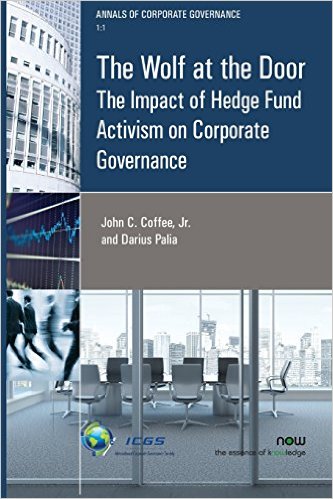autres publications Nouvelles diverses
Me lirez-vous ? Réflexion sur la traduction de « corporate »
Ivan Tchotourian 7 septembre 2017
Corpus UL vient de mettre en ligne le texte que j’avais écrit sur la traduction linguistique et métaphorique de « corporate » de l’expression corporate governance. L’article est intitulé : « L’art de la juste équivalence en droit : discussion autour du mot « corporate » de l’expression corporate governance« .
Cet article avait été publié il y a quelques temps dans la revue suivante : Revue de recherche juridique – Droit prospectif, Vol. 40 (157), 455-502 (2015-2).
Alors que le droit donne aux mots une force et une valeur particulières, la traduction contemporaine de l’expression corporate governance suscite la réflexion. Deux aspects de cette traduction de corporate governance doivent à notre sens être dénoncés : d’un côté, l’assimilation portée par la science économique faite entre corporate et firm sans changer expressément les termes (traduction intra-langagière inexacte) et, deuxièmement, la traduction dans le langage français et francophone de corporate par « entreprise » sans tirer les conséquences qui s’imposent (traduction inter-langagière inexacte). Longtemps corpus mysticum du juriste français, le corporate governance est un champ disciplinaire qui doit être investi par les juristes. Malgré la difficulté de la tâche, ces derniers doivent contribuer à identifier le juste équivalent au corporate governance afin de mettre en lumière ce qui constitue les fondations de toute aventure économique : une entreprise qui se trouve placée au cœur de la cité. En s’appuyant sur corporate, cette étude démontre que le juriste dispose déjà de tous les outils intellectuels – telles les théories nord-américaine et française de l’entreprise – pour appréhender parfaitement le corporate governance de demain : un corporate governance qui ne sera pas bâti sur une conception exclusivement contractualiste et réductrice de l’entreprise au service des seuls actionnaires.
As law breaths new life to words, the modern translation of the term “corporate governance” arouses some considerations. Two issues arise from this particular translation of the term “corporate governance” and must be here exposed: first, the mistaken equalization, in the field of economics, of the terms “corporate” and “firm” (same language miswording) and, second, the unconsidered translating, from English to French, of the term “corporate” into the term “entreprise” (different language miswording). Long considered the corpus mysticum of the French jurists, the corporate governance is a field of study that must be vested by these legal experts. Notwithstanding the difficulty of this task, they must contribute to the identification of the right counterpart of corporate governance to bring light to the foundations of every economic venture, a business within the very heart of society. By referring to the term “corporate”, this study proposes that the legal experts have already every intellectual tool (e.g. the North-American theories and French theories) to properly tackle the corporate governance of tomorrow, which is a corporate governance that won’t be leaning on exclusively on the theory of contracts and shareholders supremacy.
À la prochaine…
Ivan Tchotourian
autres publications Nouvelles diverses
Nouvel ouvrage sur la RSE
Ivan Tchotourian 8 mars 2017
La Société de législation comparée (SLC) vient de publier un nouvel ouvrage dans sa collection sur un thème qui intéressera les lectrices et les lecteurs de ce blogue : « La responsabilité sociétale des entreprises : Approche environnementale » (volume 20, août 2016).
Alors que la Responsabilité sociétale des entreprises (RSE) devient l’une des préoccupations majeures des entreprises internationales, comme l’atteste le nombre très important de rapports rendus à son sujet par des organisations internationales, un de ses aspects les moins étudiés est sa dimension environnementale, ce qui est tout à fait paradoxal au regard de la montée en puissance de la protection de l’environnement sous des formes très variées.
Cette approche environnementale de la Responsabilité sociétale des entreprises serait l’occasion de revenir sur ses sources, son incontestable dimension internationale, sa contribution à la réflexion sur les sources du droit en tant que manifestation du droit souple et processus d’harmonisation des législations.
À la prochaine…
Ivan Tchotourian
autres publications engagement et activisme actionnarial Gouvernance Nouvelles diverses
Diaboliques les actionnaires ?
Ivan Tchotourian 17 février 2017
Bonjour à toutes et à tous, je vous signale la publication de mon dernier billet du blogue Contact : « Les actionnaires sont-ils diaboliques ? » (17 février 2017). À propos de ce billet, je jette un regard sur qui sont les actionnaires et la manière dont le droit québécois (mais aussi canadien) reconnaît leur rôle bien particulier.
Les actionnaires, diaboliques? Si cette question peut surprendre et heurter, elle n’en demeure pas moins très actuelle. Beaucoup d’experts en gouvernance d’entreprise se déchirent en cherchant à confirmer ou à infirmer la thèse voulant que le court-termisme –que les entreprises sont accusées de propager– trouve sa source dans le comportement des actionnaires et dans le fait que les juristes se concentrent trop sur la situation de ceux-ci.
On fait souvent le raccourci –qu’il soit vrai ou faux– de considérer les actionnaires comme animés par un seul et unique objectif: s’assurer que l’entreprise dans laquelle ils ont investi génère toujours plus de bénéfices! Le professeur de droit américain Stephen M. Bainbridge écrit dans un ouvrage consacré à la gouvernance d’entreprise: «[…] to the extent corporate governance contributed to the financial crisis, it did so because shareholders are already too strong, not because they were too weak».
Alors, les actionnaires sont-ils si diaboliques? Méritent-ils l’opprobre? C’est sur cette question que le présent billet se penche, à partir de 3 constatations:
- Les actionnaires sont (en réalité) multiples.
- Les actionnaires sont (qu’on le veuille ou non) indispensables.
- Les actionnaires sont (parfois) court-termistes.
À la prochaine…
Ivan Tchotourian
autres publications engagement et activisme actionnarial Normes d'encadrement Nouvelles diverses
US Stewardship Code : une proposition de l’ISG
Ivan Tchotourian 10 février 2017
Le 31 janvier 2017, le Investor Stewardship Group (réunissant plus de 16 investisseur), a publié un premier projet de code de gouvernance d’entreprise et de code de gérance des investisseurs. Concernant le Stewardship Code, les principes sont les suivants :
Principle A: Institutional investors are accountable to those whose money they invest.
Principle B: Institutional investors should demonstrate how they evaluate corporate governance factors with respect to the companies in which they invest.
Principle C: Institutional investors should disclose, in general terms, how they manage potential conflicts of interest that may arise in their proxy voting and engagement activities.
Principle D: Institutional investors are responsible for proxy voting decisions and should monitor the relevant activities and policies of third parties that advise them on those decisions.
Principle E: Institutional investors should address and attempt to resolve differences with companies in a constructive and pragmatic manner.
Principle F: Institutional investors should work together, where appropriate, to encourage the adoption and implementation of the Corporate Governance andStewardship principles.
Pour accéder à ces principes : cliquez ici.
À la prochaine…
Ivan Tchotourian
autres publications Nouvelles diverses Valeur actionnariale vs. sociétale
Socially Responsible Firms : une RSE non antinomique à la maximisation des profits
Ivan Tchotourian 20 janvier 2017
Bonjour à toutes et à tous, c’est un beau papier que proposé sur SSRN et au titre accrocheur « Socially Responsible Firms » (Ferrell, Allen and Liang, Hao and Renneboog, Luc, Socially Responsible Firms (August 2016). European Corporate Governance Institute (ECGI) – Finance Working Paper No. 432/2014). Principale enseignement de cette étude : la problématique de la responsabilité sociétale ne serait pas antinomique avec la primauté de la valeur actionnariale.
The desirability for corporations to engage in socially responsible behavior has long been hotly debated among economists, lawyers, and business experts. Back in the 1930s, two American lawyers, Adolf A. Berle, Jr., and E. Merrick Dodd, Jr., had a famous public debate addressing the question: to whom are corporations accountable? Berle argued that the management of a corporation should be held accountable only to shareholders for their actions, and Dodd argued that corporations were accountable to both the society in which they operated and their shareholders. The lasting interest in this debate reflects the fact that the issues it raises touch on the basic role and function of corporations in a capitalist society.
(…) In our paper, ‘Socially Responsible Firms’, we take a comprehensive look at the CSR agency and good governance views around the globe. By means of a rich and partly proprietary CSR data set with global coverage across a large number of countries and composed of thousands of the largest companies, we test these two views by examining whether traditional corporate finance proxies for firm agency problems, such as capital spending cash flows, managerial compensation arrangements, ownership structures, and country-level investor protection laws, account for firms’ CSR activities. While other studies using a within-country quasi-experimental approach focus on the marginal effect of variation in agency problems, our data and empirical setting enable us to examine its average effect. Based on this comprehensive analysis, we fail to find evidence that CSR conduct in general is a function of firm agency problems. Instead, consistent with the good governance view, well-governed firms, as represented by lower cash hoarding and capital spending, higher payout and leverage ratio, and stronger pay-for-performance, are more likely to be socially responsible and have higher CSR ratings. In addition, CSR is higher in countries with better legal protection of shareholder rights and in firms with smaller excess voting power held by controlling shareholders. Moreover, a higher CSR rating moderates the negative association between a firm’s managerial entrenchment and value. All these findings lend support to the good governance view and suggest that CSR in general is not inconsistent with shareholder wealth maximization.
À la prochaine…
Ivan Tchotourian
autres publications Nouvelles diverses
The Anatomy of Corporate Law : nouvelle édition
Ivan Tchotourian 16 janvier 2017
Voici une bible dont la 3e édition vient d’être publiée : « The Analtomy of Corporate Law » (Oxford University Press). Si vous ne l’avez pas encore dans votre bibliothèque, c’est le moment de l’acheter ! C’est un incontournable pour qui s’intéresse à la gouvernance d’entreprise dans une perspective comparative.
This is the long-awaited third edition of this highly regarded comparative overview of corporate law. This edition has been comprehensively revised and updated to reflect the profound changes in corporate law and governance practices that have taken place since the previous edition. These include numerous regulatory changes following the financial crisis of 2007-09 and the changing landscape of governance, especially in the US, with the ever more central role of institutional investors as (active) owners of corporations. The geographic scope of the coverage has been broadened to include an important emerging economy, Brazil. In addition, the book now incorporates analysis of the burgeoning use of corporate law to protect the interests of « external constituencies » without any contractual relationship to a company, in an attempt to tackle broader social and economic problems.
The authors start from the premise that corporations (or companies) in all jurisdictions share the same key legal attributes: legal personality, limited liability, delegated management, transferable shares, and investor ownership. Businesses using the corporate form give rise to three basic types of agency problems: those between managers and shareholders as a class; controlling shareholders and minority shareholders; and shareholders as a class and other corporate constituencies, such as corporate creditors and employees. After identifying the common set of legal strategies used to address these agency problems and discussing their interaction with enforcement institutions, The Anatomy of Corporate Law illustrates how a number of core jurisdictions around the world deploy such strategies. In so doing, the book highlights the many commonalities across jurisdictions and reflects on the reasons why they may differ on specific issues.
The analysis covers the basic governance structure of the corporation, including the powers of the board of directors and the shareholder meeting, both when management and when a dominant shareholder is in control. It then analyses the role of corporate law in shaping labor relationships, protection of external stakeholders, relationships with creditors, related-party transactions, fundamental corporate actions such as mergers and charter amendments, takeovers, and the regulation of capital markets.
À la prochaine…
Ivan Tchotourian
autres publications engagement et activisme actionnarial Gouvernance normes de droit Nouvelles diverses
Hedge fund et activisme : un ouvrage
Ivan Tchotourian 10 janvier 2017
Bonjour à toutes et à tous, je signale cet ouvrage de John C Coffee Jr et Darius Palia sur l’activisme des fonds de couverture : « The Wolf at the Door: The Impact of Hedge Fund Activism on Corporate Governance ». Un bel ouvrage pour compléter une bibliothèque.
The Wolf at the Door: The Impact of Hedge Fund Activism on Corporate Governance has three basic aims: (1) to understand and explain the factors that have caused the recent explosion in hedge fund activism; (2) to examine the impact of this activism, including whether it is shortening investment horizons and discouraging investment in research and development; and (3) to survey and evaluate possible legal interventions with an emphasis on the least restrictive alternative. Although there have been other lengthy surveys, the landscape of activism is rapidly changing and this brings into doubt the relevance of empirical papers that study hedge fund activism in earlier decades. The authors suspect that the recent success of such activism may be fueling a current « hedge fund bubble » under which an increasing number of activist funds are pursuing a decreasing, or at least static, number of companies that have overinvested. This monograph is particularly focused on those markets and the legal forces that may be driving this bubble. After an introduction, Section 2 begins with an analysis of those factors that have spurred greater activism on the part of hedge funds. Section 3 considers evidence suggesting that as the composition of a firm’s shareholder population shift towards more « transient » holders, its investment horizon shortens. Section 4 surveys recent studies to reach assessments about who the targets of hedge fund activism are; the stock price returns from hedge fund activism and the distribution of those returns; the degree to which wealth transfers explain the positive stock price returns to activism; the post-intervention evidence about changes in operating performance of hedge fund targets; and the holding periods and exit strategies of hedge fund activists. Section 5 evaluates some policy options looking for the least drastic means of accomplishing policy goals. Finally, Section 6 offers a brief conclusion that surveys how the changing structure of shareholder ownership and the recent appearance of temporary shareholder majorities complicate corporate governance, both empirically and normatively.
À la prochaine…
Ivan Tchotourian



